
1. Ledger Wallet
Free Shipping
| Type of wallet | Cold storage |
|---|---|
| Supported coins | 5,500+ |
| Pricing | Starts at €85 / $88 |
Free Shipping applies when ordering Ledger Nano X
Discover what makes a cryptocurrency wallet the best and how to pick one, as well as more information about the various types of wallets with CryptoMeister!

Free Shipping
| Type of wallet | Cold storage |
|---|---|
| Supported coins | 5,500+ |
| Pricing | Starts at €85 / $88 |
Free Shipping applies when ordering Ledger Nano X

| Type of wallet | Cold storage |
|---|---|
| Supported coins | 14 |
| Pricing | €398 ($413) |

| Type of wallet | Cold storage |
|---|---|
| Supported coins | 10,000+ |
| Pricing | $50 |
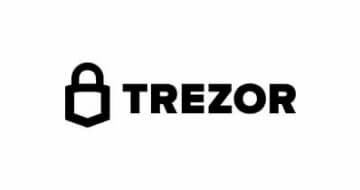
| Type of wallet | Cold storage |
|---|---|
| Supported coins | 1,500+ |
| Pricing | $80 - $260 |

| Type of wallet | Cold storage |
|---|---|
| Supported coins | 10,000+ |
| Pricing | $79 - $139 |
From the moment a cryptocurrency is mined, it’s assigned to a wallet.
Whether that’s on a daily basis in proof-of-work or thrown into existence from a pre-mine, cryptos are always attached to a set of keys controlled by a wallet.
There are lots of different wallets out there and they all have different features.
So, CryptoMeister is going to walk you through the world of cryptocurrency wallets.
We can all learn a thing or 2 about crypto wallets, even if you’ve been in the crypto space for years.
Wallets are always changing so it never hurts to brush up on the latest wallet tech.
Let’s learn about crypto wallets!

Cryptocurrency wallets are bits of software that allow you to store public and private keys.
You can also use this software to send and receive cryptocurrencies at the click of a button.
Wallets are unique to each blockchain, and you can have multiple wallets in a wallet software.
What we mean by this is that you can have a software that allows to you setup multiple wallets on multiple blockchains.
For example, BRD is a wallet software that allows you to generate various cryptocurrency wallets for different blockchains, including Bitcoin, Ethereum, Bitcoin Cash, XRP and Tezos.
That one bit of software can handle all those types of wallets and more.
As a result, many people get software and wallets mixed up.
You will have 2 sets of keys created for you when you create a new wallet within wallet software.
The first is the public keys.
Your public key is the address that you give other people.
They use this as the address to send cryptocurrency to you.
The other is your private keys.
Private keys act as your digital signature to make transactions.
Together, they allow you to control the wallet.
Whoever controls the private keys controls the wallet.
So, it’s imperative that you never share your private keys or seed phrase with anyone.
Wallets handle all of this information for each specific blockchain, making the process of managing keys and transactions quick and easy.
There are more advanced wallets that give you more control over these elements, but these aren’t recommended for the average crypto user.
The knowledge required to work them is beyond that of the average crypto user and the additional features are not worth learning if you plan to remain an average crypto user.
An average crypto user is someone that buys, holds, sends, and sells crypto, rather than someone that utilizes the full potential of a particular blockchain.

Interestingly, cryptocurrencies aren’t actually stored in your wallet.
It’s not like cash that lives in your wallet.
If you take your wallet to the moon, the cash is not accessible on Earth anymore.
With cryptocurrencies, they’re stored on the blockchain in a giant ledger.
When someone transfers cryptocurrency to you, the ledger simply reassigns the cryptocurrency to the new wallet.
Then the keys from this wallet are used to control that cryptocurrency.
Let’s take Bitcoin as an example.
It’s stored on the Bitcoin blockchain in the ledger.
If Jane’s wallet says that it has 50 Bitcoin, what that means is that 50 Bitcoin is assigned to her keys.
They don’t live in her wallet.
Her wallet simply holds the keys that control the Bitcoin in the ledger.
When Jane wants to send her Bitcoin, she inputs the details to her wallet and signs it with her keys.
The Bitcoin ledger then reassigns the Bitcoin that Jane sent to the set of keys she inputted.
Let’s break it down a step further and say you have a Ledger Nano S hardware wallet.
There’s no cryptocurrency on it – just sets of keys.
Your cryptocurrency lives on the blockchain, not in the wallet.
Your Ledger Nano S simply allows you to store your keys more securely and validate transactions you wish to make more securely.
This of the hardware wallet as a 2-factor authentication device for crypto transactions.
So, when you receive cryptocurrency, what’s actually happening is that the cryptocurrency has been assigned to your keys.
When you send cryptocurrency, your wallet takes all the data you input and passes it to the blockchain.
The blockchain then acts on that information and will reassign the specified amount of crypto to the keys you picked.
Crypto wallets are a simple and easy way to interact with blockchains.
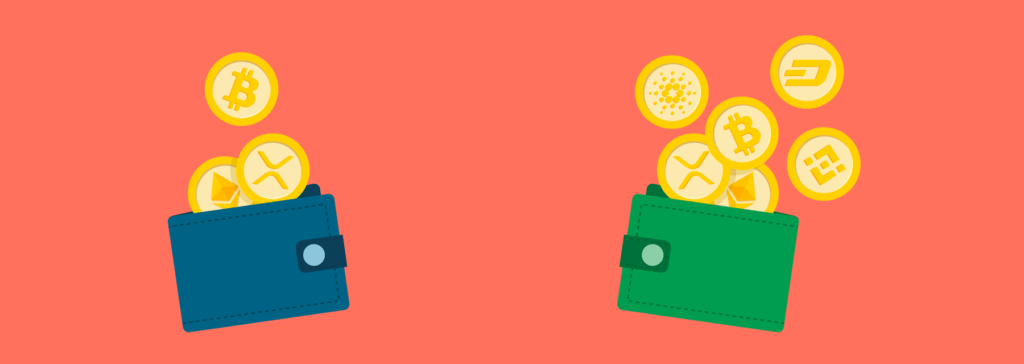
Crypto wallets come in all shapes and sizes.
To access a wallet, you’ll need to have wallet software, which is often called a wallet as well.
So, as a result, wallets are multi-layered.
This means that you need to install a wallet (the wallet software) onto your device.
Then, you can open that wallet and create cryptocurrency wallets that store your keys.
Crypto wallet software is growing and adapting to a multi-coin world.
That means it’s easier to find multi-coin crypto wallets.
These wallets then allow you to create multiple crypto wallets inside to hold the keys to your crypto from multiple blockchains.
For example, BRD allows you to create wallets to manage the keys for dozens of different blockchains.
You then control all of these from the BRD wallet application.
This makes your life simple and easy.
These multi-coin wallets are generally very basic and lack advanced features that you’d find in a core wallet.
A core wallet is a wallet designed to work with a single blockchain.
The core wallets will run as full clients, which means that before you get started, you’ll have to download the entire blockchain.
For example, the Bitcoin core client allows you to take full control over your money as well as validate transactions.
These types of wallets are not designed for those that are not technically minded, however, and are quite cumbersome to use.
But, if you are after a purer blockchain experience and don’t mind a janky user interface, then core wallets are good fun.
Just remember, using a core client will require you to download the entire blockchain.
Bitcoin’s blockchain is currently more than 350GB, which will take a long time to sync, even with a speedy internet connection.
Other wallets don’t have this requirement, making them quick and easy to use.
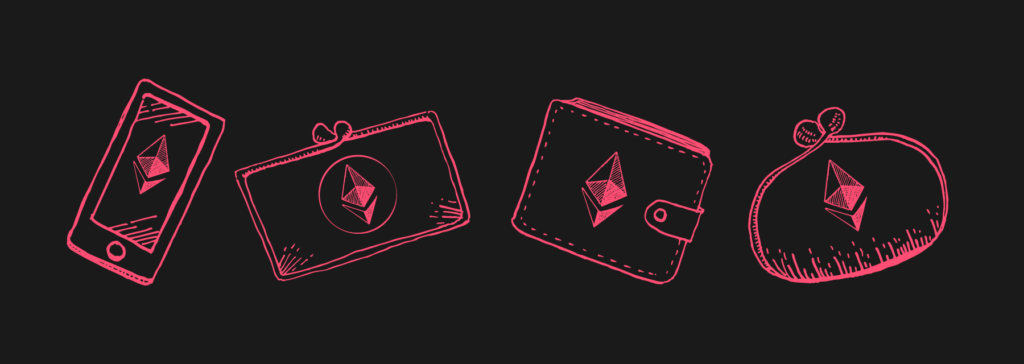
Not all crypto wallets are built equally.
Some are fast, easy to use and support a wide range of coins.
Some are harder to use but keep your cryptocurrency more secure than Fort Knox.
It all depends on what you’re planning on doing with your cryptocurrency.
Are you going to use it on a daily basis or are you looking to invest for a longer period of time?
Picking a wallet based on your needs is the best move to make.
Otherwise, you’ll end up using a wallet that makes your life harder.
So, let’s start by working out what type of crypto wallet is compatible with your lifestyle.
Does this sound like you?
If this sounds like you, then you need a browser extension wallet.
Does this sound like you?
If this sounds like you, then a mobile crypto wallet would suit you.
Does this sound like you?
If this sounds like you, then you need a hardware wallet.
Now you know which type of crypto wallet will suit your needs, you can dive in and learn more about that type of wallet.

Browser extension wallets are soaring in popularity thanks to the evolution of decentralized finance (DeFi) and non-fungible tokens (NFTs).
You simply install the extension in your browser and then create a wallet.
You can then sync it with various blockchains and use it to sign into blockchain applications that you use in your browser.
They’re incredibly convenient to use and allow you to make hundreds of transactions per day without frustrating you.
Simply click, click, boom – making a transaction is that quick with browser extension wallets.
However, they are vulnerable to attack, so they’re not advised for storing large amounts of funds in.
Also, only download these types of wallets directly from the developers as there are a lot of fakes around.
The best browser extension wallets are:

As the name suggests, mobile wallets are cell phone applications.
These types of wallets are quick and easy to use, and by virtue of being on your cell phone, they go everywhere you go.
They’re often secured using a pin code or biometrics, depending on the device that you have.
The majority of mobile wallets also support multiple blockchains and coins, giving you greater control over your finances.
They will all give you your own seed phrase which can be used to restore your wallet should you lose your device.
The best mobile wallets are:
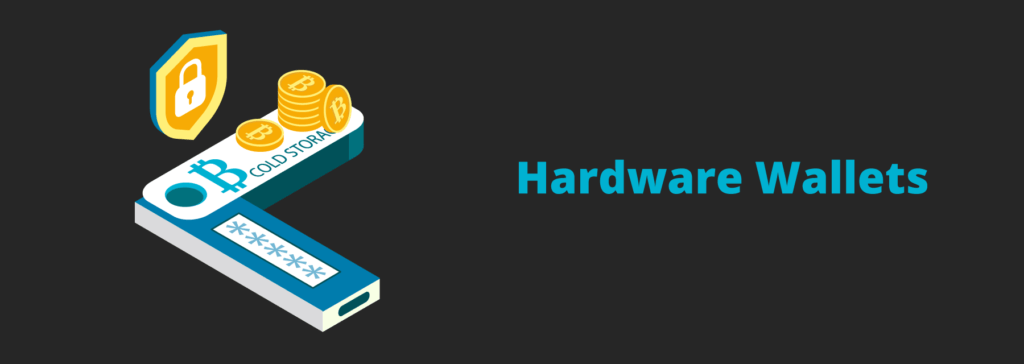
The most secure crypto wallets are known as hardware wallets.
These are actual bits of hardware that you use to control your private keys.
They feel more like a 2-factor authentication device than a crypto wallet, but that’s pretty much what a crypto wallet is anyway.
There are numerous manufacturers out there, each baking in their own unique features.
These are also the most expensive form of crypto wallets, ranging from €50 – €1,000+.
While the cost varies, you’re not always paying for better security.
The more expensive models come with more features to make your life easy, and some even allow you to plan for your demise.
Due to the fact that hardware wallets are more secure than other wallets, they take a while to use when making a transaction.
So they’re not recommended if you make hundreds of transactions every week.
They’re more for the long-term hodler.
Also, it’s very important to only buy directly from the manufacturer as there are fakes all over the internet.
The best hardware wallets are:

There is a lot of pressure when it comes to picking the right crypto wallet, especially if you’re going to spend money.
But panic not – CryptoMeister is here to help you pick the right wallet for you.
You don’t need to spend money to have a good and safe crypto wallet.
There are plenty of free ones out there that are just as safe and secure.
What you really need to look at is how you use crypto.
If you use crypto all the time and are constantly making transactions, then you need a wallet that’s wherever you go and easy to use.
Additionally, if you’re going to be playing with decentralized finance (DeFi) and non-fungible tokens (NFTs), you need a wallet that’s got you covered.
For these types of applications, a browser extension wallet is a great choice.
If you want to use crypto frequently, but on the go, rather than just from your computer, then you’ll want a mobile wallet.
For the long-term hodler or someone that’s more security-focused, a hardware wallet is best for you!
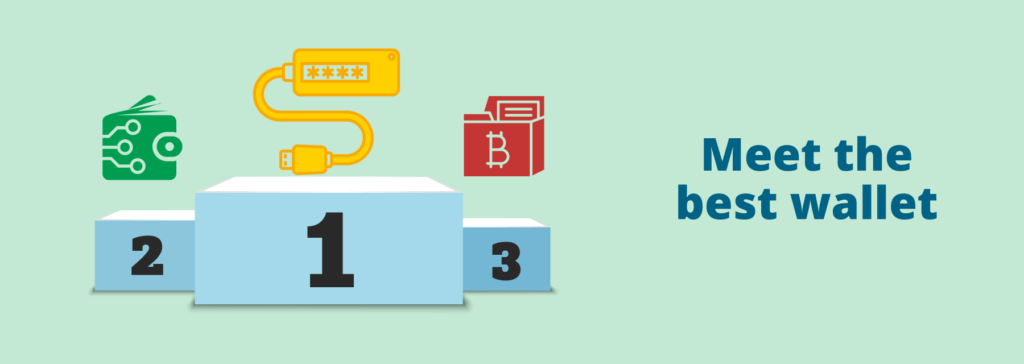
Crypto wallets all have their own pros and cons, with these changing based on your use cases.
As a result, there’s no single answer to this question.
It all depends on you.
Everyone has their own tastes, desires and needs, so picking a single wallet is impossible.
Generally speaking, there are 3 categories of crypto wallets that you can use.
Once you’ve picked a category of wallet, you can then narrow it down based on the features you’re after.
In CryptoMeister’s opinion, the best browser extension wallets are:
Keeping the trend going of this being our opinion, the best mobile wallets are:
Finally, according to CryptoMeister, the best hardware wallets are:
Obviously take this list with a pinch of salt as you will have your own preferences.
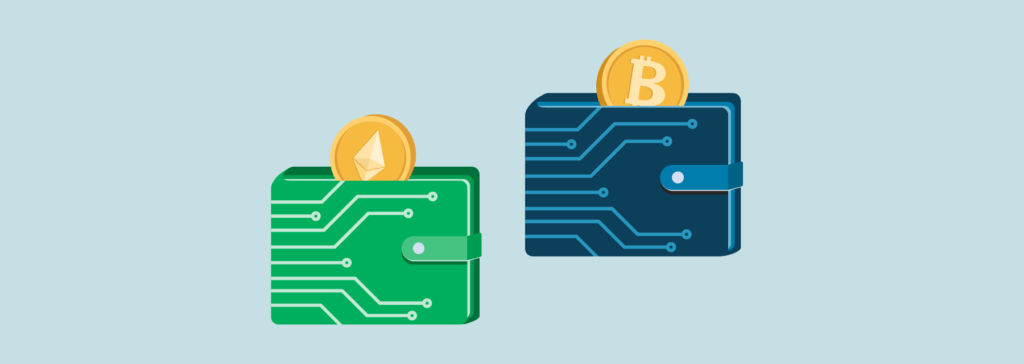
If you’re interested in keeping more anonymity when using crypto, or you just want multiple places to store your crypto, then you’ll be pleased to know that you can have multiple crypto wallets.
You could have a million crypto wallets if you really wanted to but remembering all the seed phrases would get tricky.
Generally speaking, people have a couple of crypto wallets and use them for different purposes.
For example, you could have a browser extension wallet for DeFi and NFTs, a mobile wallet for day-to-day crypto purchases and a hardware wallet for your main stash.
There’s nothing wrong with this, and all the pros do this.
Just like you can have accounts at multiple exchanges, it’s perfectly fine and normal to have different wallets.
Separate out your funds to keep them more secure and to stop you from spending too much when you’re out and about!

All technology can be hacked, unfortunately, and this extends to crypto wallets.
If you’re using a browser extension, hackers can infect your computer which can take control of your wallet.
If you’re using a mobile wallet, someone can learn your pin and make transactions from your wallet.
If you’re using a hardware wallet and someone gets a hold of it and knows your passcode, they can make transactions.
But, there are steps that you can take to protect yourself to a point where you’re not a worthwhile target.
When you create wallets, store your seed phrase offline in a secure location.
Whether you keep it in a box buried in your garden, store it behind a light switch or in the freezer, anywhere is safer than on a device connected to the internet.
If someone gets hold of your seed phrase, they can restore your wallet on their device.
Next up, you want to make sure you’re using unique passwords and pin codes for every device and application.
If you use the same password and pin code on all your devices, it only takes 1 mistake to give away access to your life.
You can use password managers to help you generate random passwords and pin codes, as well as store them securely.
LastPass and 1Password are great choices in this department.
Finally, make sure that you’re using 2-factor authentication (2FA).
Use a 2FA application like Google Authenticator or Authy as these are far more secure than SMS or email 2FA.
If you follow these steps, then you’ll make yourself as secure as possible and take yourself off the radar of hackers!
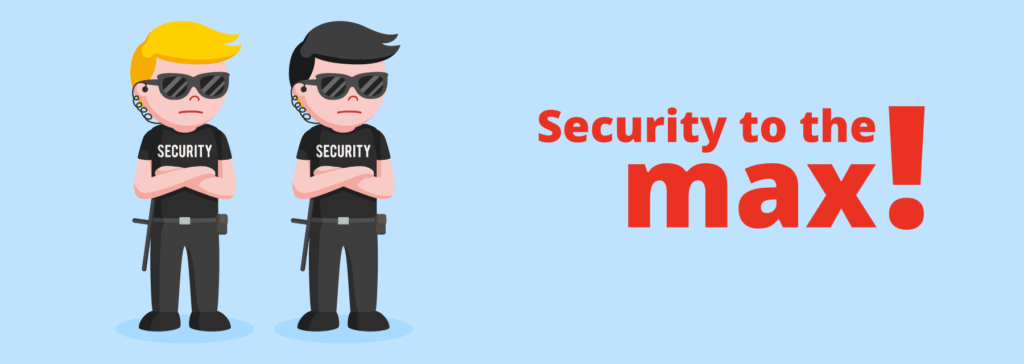
Your crypto is only as secure as your weakest security link.
If you use the same pin code for everything and your computer has a ton of viruses, then no crypto wallet you have will be truly safe and secure.
But for a moment, let’s presume that you’ve got good cyber security and you follow all the best practices.
Which type of crypto wallet will be the safest for you?
Well, it’s actually quite simple – a hardware wallet.
A hardware wallet allows you to airgap your crypto.
This means that without your hardware wallet, the cryptocurrency that you own cannot move.
Think of a hardware wallet as a 2-factor authentication device that you need in order to approve transactions.
Without the hardware kit, your crypto isn’t moving.
You could securely store this offsite in a secure facility, and as long as your seed phrase is just as secure, your crypto is in the safest possible location.
Hardware wallets vary in price, so if you’re wondering what the difference between a €50 one and a €1,000 one is, we’ve got the answer.
Not much!
All hardware crypto wallets are as secure as one another.
They have similar chips and hardware inside to prevent unauthorized access.
The price tag is for features.
These are items like bigger displays, more memory, better applications, additional features (think Bluetooth and mobile compatibility), and even additional services.
Some hardware wallet developers offer a “premium” package that gives you additional backups and security at their facilities.
For example, Keevo premium allows you to store a secondary key inside a secure bunker guarded by 24/7 security.
In reality, if you don’t need the extra fancy features, which are all not necessary, you can get away with an entry level model.

Thinking about the end of our time here on the planet is rather scary and daunting.
But eventually, someone must come along and pick up our bags of crypto and carry on the proud tradition of hodling.
Plus, who knows what crypto could be worth in the future.
Leaving friends, family and loved ones a nice pile of crypto is the best way to say “thank you” for all they’ve done for you.
But, how can you prepare for this inevitability without compromising your security?
Well, there are a couple of options that you can pick.
First up is the cheapest option, and possibly the simplest option.
You can write a letter and include instructions on how to recover your seed phrase and restore your wallet.
In here, pop your seed phrase so that whoever you leave the letter for can find your crypto and open it.
Give it to the person well ahead of time and make sure that they know to open it after you pass.
Next up, you can include this information in your will.
It’s recommended to create a will that details and outlines your possessions and how you wish for them to be distributed.
You can then slide in your seed phrase and a message to whoever you’re leaving it to.
Once you pass, your will shall be read, and the recipient of the crypto will manage to unlock your stash.
Finally, we come to the more expensive option, but it’s the most secure, especially if you don’t trust your lawyer.
Keevo offers an estate planning service.
A copy of your carbon key, which is essentially a 2-factor authentication device used to unlock and verify transactions from your Keevo wallet, will be stored in an ultra-secure bunker with 24/7 security.
Upon your death, whoever you leave this treasure trove to will be able prove your death with your death certificate.
The spare carbon key will then be carefully shipped out to their location, which they can then use to unlock your crypto wallet and continue your legacy.
Planning for our death is never a fun or exciting prospect, but it’s necessary.
If you don’t pass on your crypto to the next generation, then all your hard work will be for nothing.
Consider planning for all events well ahead of time, as you never know what the future has in store for any of us.

Crypto wallets come in all sorts of flavors, so picking one that’s right for you is important.
If you’re still unsure as to which crypto wallet you should use, then get all 3 types – browser extension, mobile wallet and hardware wallet.
That way you’ve got complete flexibility and you can use the one that suits you the most.
Besides, it doesn’t hurt to have an extra wallet laying around so that you can save up for a rainy day!
The best crypto wallet for you depends on what you want it for. Hardware wallets are best for storing large amounts of crypto or crypto you want to hold for a long time, while mobile wallets are best for those who want to use their crypto on a daily basis.
Only crypto wallets from reputable makers and developers should be trusted.